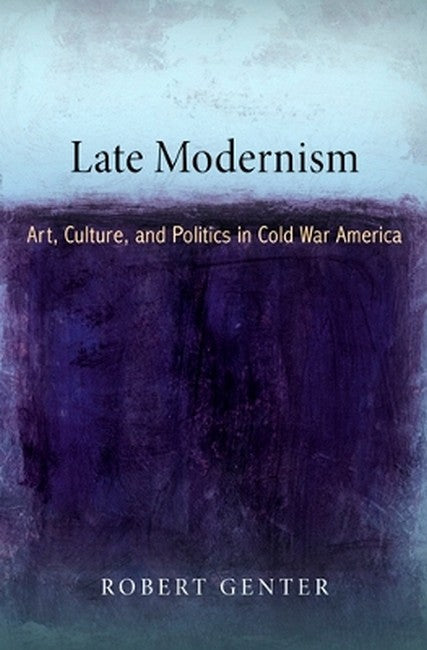Robert Genter teaches in the Department of History at Nassau Community College, New York.
Request Academic Copy
Please copy the ISBN for submitting review copy form
Description
Introduction. A Genealogy of Postwar American Modernism Part I High Modernism in America: Self and Society in the Early Cold War One. Science, Postmodernity, and the Rise of High Modernism Two. Reconsidering the Authoritarian Personality in America: The Sociological Challenge of David Riesman Three. Psychoanalysis and the Debate over the Democratic Personality: Norman Brown's Freudian Revisions Part II The Revolt of Romantic Modernism: Beatniks, Action Painters, and Reichians Four. A Question of Character: The Dramaturgy of Erving Goffman and C. Wright Mills Five. Beyond Primitivism and the Fellahin: Receiving James Baldwin's Gift of Love Six. Masculinity, Spontaneity, and the Act: The Bodily Ego of Jasper Johns Seven. Rethinking the Feminine Within: The Cultural Politics of James Baldwin Part III The Challenge of Late Modernism Eight. Rhetoric and the Politics of Identification Writ Large: The Late Modernism of Kenneth Burke, C. Wright Mills, and Ralph Ellison Conclusion. The Legacy of Late Modernism Notes Index Acknowledgments
"Late Modernism is a boldly original and undoubtedly controversial study of how modernism was transformed, assimilated, and sometimes institutionalized after 1945, before being challenged in the 1960s and 1970s. Exhaustively researched and lucidly argued, the book sheds light on a large, idiosyncratic cast of artists and thinkers, from David Riesman and C. Wright Mills to Jasper Johns and Kenneth Burke. It provides us with a fresh, illuminating synthesis as it tracks the eddies and crosscurrents of postwar American culture." (Morris Dickstein, author of Gates of Eden and Dancing in the Dark) "Late Modernism makes a profound contribution to the understanding of the history of modernism in American arts and letters in the mid-twentieth century. I do not know of anything currently available in intellectual and cultural history that offers such a striking reformulation of the course of modernist ideas and practices in the decades after World War II." (Howard Brick, author of Age of Contradiction: American Thought and Culture in the 1960s)

